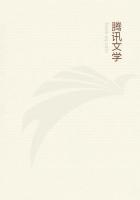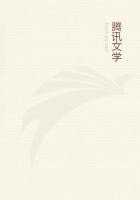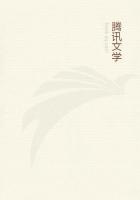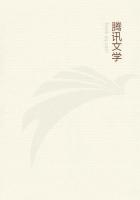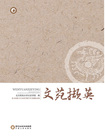"But what would be the use of new continents?" asked Herbert."It appears to me that the present extent of habitable countries is sufficient for humanity.Yet nature does nothing uselessly.""Nothing uselessly, certainly," replied the engineer, "but this is how the necessity of new continents for the future, and exactly on the tropical zone occupied by the coral islands, may be explained.At least to me this explanation appears plausible.""We are listening, captain," said Herbert.
"This is my idea: philosophers generally admit that some day our globe will end, or rather that animal and vegetable life will no longer be possible, because of the intense cold to which it will be subjected.What they are not agreed upon, is the cause of this cold.Some think that it will arise from the falling of the temperature, which the sun will experience alter millions of years; others, from the gradual extinction of the fires in the interior of our globe, which have a greater influence on it than is generally supposed.I hold to this last hypothesis, grounding it on the fact that the moon is really a cold star, which is no longer habitable, although the sun continues to throw on its surface the same amount of heat.If, then, the moon has become cold, it is because the interior fires to which, as do all the stars of the stellar world, it owes its origin, are completely extinct.Lastly, whatever may be the cause, our globe will become cold some day, but this cold will only operate gradually.
What will happen, then? The temperate zones, at a more or less distant period, will not be more habitable than the polar regions now are.Then the population of men, as well as the animals, will flow towards the latitudes which are more directly under the solar influence.An immense emigration will take place.Europe, Central Asia, North America, will gradually be abandoned, as well as Australasia and the lower parts of South America.The vegetation will follow the human emigration.The flora will retreat towards the Equator at the same time as the fauna.The central parts of South America and Africa will be the continents chiefly inhabited.The Laplanders and the Samoides will find the climate of the polar regions on the shores of the Mediterranean.Who can say, that at this period, the equatorial regions will not be too small, to contain and nourish terrestrial humanity?
Now, may not provident nature, so as to give refuge to all the vegetable and animal emigration, be at present laying the foundation of a new continent under the Equator, and may she not have entrusted these insects with the construction of it? I have often thought of all these things, my friends, and I seriously believe that the aspect of our globe will some day be completely changed; that by the raising of new continents the sea will cover the old, and that, in future ages, a Columbus will go to discover the islands of Chimborazo, of the Himalayas, or of Mont Blanc, remains of a submerged America, Asia, and Europe.Then these new continents will become, in their turn, uninhabitable; heat will die away, as does the heat from a body when the soul has left it; and life will disappear from the globe, if not for ever, at least for a period.Perhaps then, our spheroid will rest--will be left to death--to revive some day under superior conditions! But all that, my friends, is the secret of the Author of all things; and beginning by the work of the insects, I have perhaps let myself be carried too far, in investigating the secrets of the future.
"My dear Cyrus," replied Spilett, "these theories are prophecies to me, and they will be accomplished some day.""That is the secret of God," said the engineer.
"All that is well and good," then said Pencroft, who had listened with all his might, "but will you tell me, captain, if Lincoln Island has been made by your insects?""No," replied Harding; "it is of a purely volcanic origin.""Then it will disappear some day?"
"That is probable.
"I hope we won't be here then."
"No, don't be uneasy, Pencroft; we shall not be here then, as we have no wish to die here, and hope to get away some time.""In the meantime," replied Gideon Spilett, "let us establish ourselves here as if forever.There is no use in doing things by halves."This ended the conversation.Breakfast was finished, the exploration was continued, and the settlers arrived at the border of the marshy region.It was a marsh of which the extent, to the rounded coast which terminated the island at the southeast, was about twenty square miles.The soil was formed of clayey flint-earth, mingled with vegetable matter, such as the remains of rushes, reeds, grass, etc.Here and there beds of grass, thick as a carpet, covered it.In many places icy pools sparkled in the sun.Neither rain nor any river, increased by a sudden swelling, could supply these ponds.They therefore naturally concluded that the marsh was fed by the infiltrations of the soil and it was really so.It was also to be feared that during the heat miasmas would arise, which might produce fevers.
Above the aquatic plants, on the surface of the stagnant water, fluttered numbers of birds.Wild duck, teal, snipe lived there in flocks, and those fearless birds allowed themselves to be easily approached.
One shot from a gun would certainly have brought down some dozen of the birds, they were so close together.The explorers were, however, obliged to content themselves with bows and arrows.The result was less, but the silent arrow had the advantage of not frightening the birds, while the noise of firearms would have dispersed them to all parts of the marsh.The hunters were satisfied, for this time, with a dozen ducks, which had white bodies with a band of cinnamon, a green head, wings black, white, and red, and flattened beak.Herbert called them tadorns.Top helped in the capture of these birds, whose name was given to this marshy part of the island.The settlers had here an abundant reserve of aquatic game.At some future time they meant to explore it more carefully, and it was probable that some of the birds there might be domesticated, or at least brought to the shores of the lake, so that they would be more within their reach.
About five o'clock in the evening Cyrus Harding and his companions retraced their steps to their dwelling by traversing Tadorn's Fens, and crossed the Mercy on the ice-bridge.
At eight in the evening they all entered Granite House.

